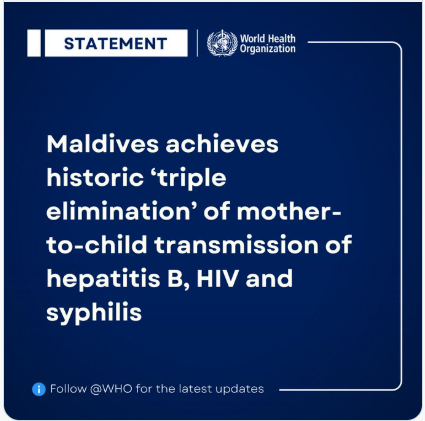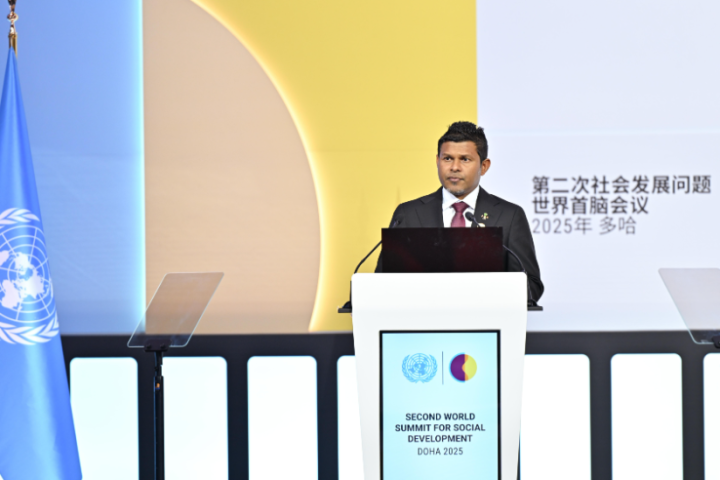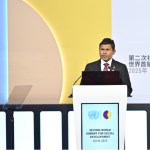In a landmark achievement for global health, the Maldives was celebrated on Monday as the world’s first nation to eliminate mother-to-child transmission of HIV, syphilis, and hepatitis B, a milestone officially validated by the World Health Organization (WHO) during its 78th South-East Asia Regional Committee meeting here. The announcement, hailed by President Dr. Mohamed Muizzu as a “remarkable milestone,” underscores the nation’s decades-long commitment to maternal and child health, bolstered by robust public health policies and universal health coverage.
The achievement builds on the Maldives’ earlier successes, including the 2019 WHO validation for eliminating mother-to-child transmission of HIV and syphilis. That year, the country reported no new cases of congenital syphilis among newborns, a testament to its comprehensive antenatal care system, which now reaches more than 95 percent of pregnant women with testing for all three diseases. A 2023 national survey further confirmed zero hepatitis B infections among young children, surpassing global elimination targets and sealing the nation’s historic “triple elimination” status.
“This historic validation is a moment of immense pride for the Maldives and a reflection of our nation’s steadfast commitment to protecting mothers, children, and future generations,” said Health Minister Abdulla Nazim Ibrahim, speaking at the WHO meeting. The success is underpinned by universal health coverage, which provides free antenatal care, vaccines, and diagnostic services to all residents, including migrants, supported by a national health investment exceeding 10 percent of the country’s gross domestic product.
The Maldives’ journey to this milestone reflects a sustained effort to integrate maternal and child health services. Since the early 2000s, the nation has maintained near-universal childhood immunization coverage, with 98 percent of newborns receiving timely hepatitis B vaccinations, according to UNICEF. The country also eliminated malaria, measles, and polio in previous years, showcasing a resilient health infrastructure despite its scattered island geography. In 2022 and 2023, no babies were born with HIV or syphilis, a stark contrast to the global burden, where the WHO estimates over 8,000 infants were born with congenital syphilis in the South-East Asia region alone in 2024.
President Muizzu, in a post on X, extended heartfelt gratitude to health professionals, communities, and partners, emphasizing the collective effort behind the achievement. The news has sparked widespread pride on social media, with citizens and officials alike celebrating the Maldives as a model for small nations. “There is no challenge we can’t overcome and no height we can’t reach when we commit to unity and a clear national focus,” wrote Mohamed Rafeeq, echoing a sentiment shared by many.
While the achievement is a beacon of hope, health experts note that maintaining this status will require continued investment in digital health systems and targeted interventions for vulnerable populations. The WHO has pledged support to ensure the Maldives’ progress endures, positioning the nation as an inspiration for global health equity.
For a country of fewer than 500,000 people, the Maldives’ triumph offers a powerful narrative of what is possible with political will and community dedication, proving that even the smallest nations can lead the world in safeguarding public health.












